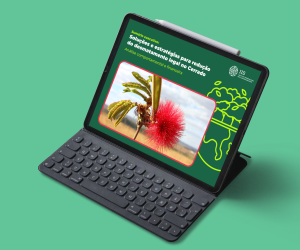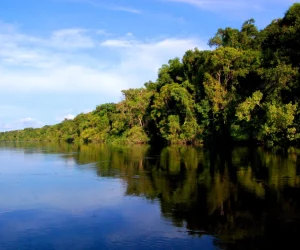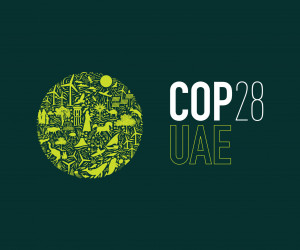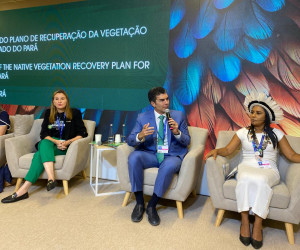News > News
20.12.23
COP 28 Climate Summit: Acknowledging Progress, Facing Challenges, and Brazil’s Role for a Sustainable Future
Rafael Loyola, Executive Director of the International Institute for Sustainability (IIS), closely followed the negotiations at the COP 28 Climate Summit in Dubai. In this text, Rafael provides a comprehensive overview of what he observed during the Conference, recognizing advancements, addressing persistent challenges, and commenting on Brazil’s role as the host of COP 30 in Belém. Check it out:
Throughout the COP 28 Climate Summit in Dubai, the International Institute for Sustainability was deeply engaged in crucial discussions about the planet’s future. I want to share a summary of this event that brought together global leaders, scientists, and activists in a unified quest for solutions to climate change.
During the intense negotiations of COP 28, we witnessed significant progress that deserves recognition. Several countries reaffirmed their commitments to emission reduction targets, signalling a growing understanding of the climate urgency. The commitment to the 1.5°C limit was maintained, and while we are close to falling short of this goal, we are in a much better position than in 2015 when we signed the Paris Agreement.
The increased investments in renewable energies and the acceleration towards a low-carbon economy are positive indicators that the message about the need for immediate action is resonating. Additionally, I observed a very genuine and positive interaction between governments, the private sector, and non-governmental organizations, emphasizing the importance of multi-sectoral collaboration. The dialogue with indigenous peoples and traditional communities was also notable, at least in the case of Brazil.
Moreover, the explicit mention of transitioning away from fossil fuels in the agreement is indeed a victory after 28 COPs without explicitly addressing the primary cause of climate change. This was the most anticipated topic of the negotiations, complex to achieve, and although still aspirational, having this mention in the text is genuinely positive.
However, we cannot overlook the persistent and emerging challenges that continue to haunt the planet. Rising temperatures, extreme weather events, and the accelerated loss of biodiversity demand a faster and more comprehensive response. Countries need to be more ambitious in cutting greenhouse gas emissions. We must reduce our emissions by 43% by 2030 and 60% by 2050. It’s a significant challenge, and merely transitioning away from fossil fuels will not be sufficient.
Furthermore, the transition to a green economy needs to be inclusive, ensuring that no community or sector is left behind. In this context, the creation of a loss and damage fund to support the countries most vulnerable to climate change should also be celebrated. The reality for countries to deal with the climate crisis is extremely different, and this fund aims to support a fairer green transition. COP 28 reminds us that to achieve true sustainability, we must address social and economic issues alongside environmental ones.
Finally, I emphasize the importance given to nature-based solutions and the integration of actions that simultaneously address the climate crisis and the biodiversity crisis. The agreement acknowledges the role of biodiversity and ecosystems in mitigating the negative effects of climate change and reinforces the need to halt and ideally reverse the loss of native vegetation and global deforestation by 2030.
Speaking of nature, Brazil has enormous potential to be a protagonist in the world’s largest climate crisis agreement. This is because #COP30, two years from now, will be in Belém. I would even say that COP 30 started at COP 28! I closely followed the government of the state of Pará and the efforts of companies and civil society for a strong articulation, aiming for a grand event in the Amazonian lands.
Now it remains to be seen how the decisions will be implemented in the coming years and how we will progress between COP 29 – to be held in Azerbaijan next year – and the much-anticipated COP 30 in Brazil.










